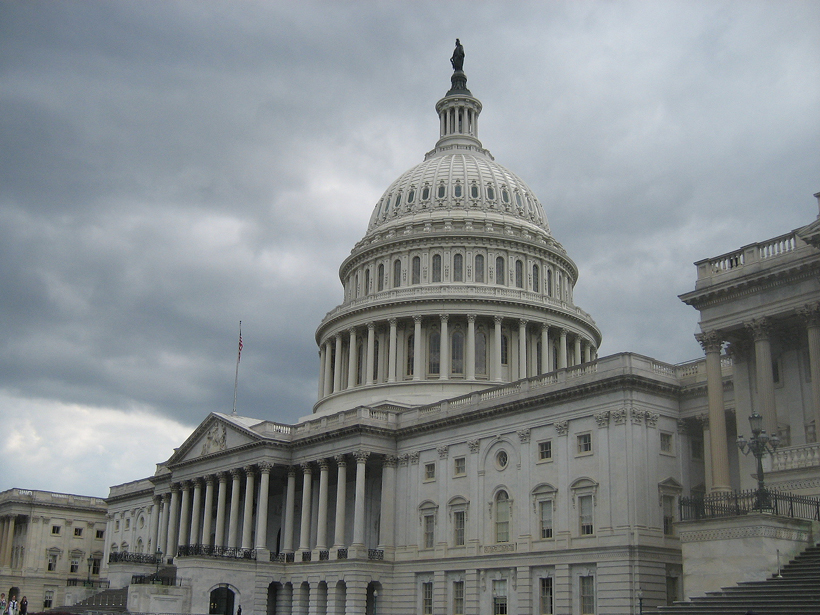The U.S. House of Representatives approved, on 20 May, the America COMPETES Reauthorization Act (H.R. 1806), which would limit some funding for Earth science research at the National Science Foundation (NSF) and the Department of Energy’s Office of Science for fiscal years (FY) 2016 and 2017. The bill also authorizes funding for the National Institute of Standards and Technology, among other measures.
The bill, which authorizes funding but does not appropriate it, would fund the NSF Directorate for Geosciences at $1.2 billion for FY 2016 as well as for FY 2017. This amount falls short of the $1.3 billion FY 2015 estimated budget level and the $1.37 billion administration request for FY 2016.
NSF as a whole would receive $7.6 billion for FY 2016, which is $235 million above FY 2015 but less than the administration’s FY 2016 request of $7.72 billion. The legislation would provide specific allocations for NSF directorates. The bill prioritizes funding for NSF’s directorates of Biological Sciences, Engineering, Computer and Informational Science, and Mathematical and Physical Sciences. It would also sharply cut funding for the agency’s Directorate of Social, Behavioral and Economic Sciences.
Republican supporters of the bill, which passed by a vote of 217-205 with no Democrats voting for it, have called it “a comprehensive, pro-science, fiscally responsible bill to keep America competitive and reestablish the federal government’s primary scientific role to fund basic research.” However, Democrats say the legislation “embraced a partisan, anti-science agenda.”
The bill next will be considered by the Senate. The Senate currently is working on its own versions of the COMPETES Act. An 18 May statement from the White House Office of Management and Budget said that the administration strongly opposes H.R. 1806, and that if the president were presented with it, his senior advisors would recommend that he veto the bill. The bill “undermines key investments in science, technology, and innovation and imposes unnecessary and damaging requirements on Federal support of research,” according to the statement.
Appropriations Bill Approved by Committee
Passage of the America COMPETES bill came on the same day that the House Appropriations Committee approved the FY 2016 Commerce, Justice, Science Appropriations bill, which funds the Department of Commerce, the Department of Justice, NASA, NSF, and other related agencies. That bill, which appropriates rather than just authorizes funding, would provide $7.4 billion to NSF, an increase of $50 million above the FY 2015 level and $329 million below the administration’s request.
The appropriations bill, which needs to be approved by the full House, includes $6 billion for research and related activities. The bill report language calls for 70% of that $6 billion to go to the NSF directorates for Biological Sciences, Engineering, Computer and Informational Science, and Mathematical and Physical Sciences. This would force NSF to cut more than $250 million from the agency’s Directorate for Geosciences and the Directorate for Social, Behavioral and Economic Sciences, according to the Coalition for National Science Funding.
The Debate over America COMPETES
“Our colleagues on the other side of the aisle today would have you believe that the only way to be pro-science is to spend more taxpayer money than the Budget Control Act allows. That is irresponsible.”
During the debate over H.R. 1806 prior to the vote, members on both sides of the aisle offered sharply different perspectives on the legislation.
Rep. Lamar Smith (R-Tex.), chair of the House Science, Space, and Technology Committee and sponsor of the bill, said, “Our colleagues on the other side of the aisle today would have you believe that the only way to be pro-science is to spend more taxpayer money than the Budget Control Act allows. That is irresponsible. If everything is a priority, then nothing is.” He added that the bill maintains funding for NSF “in the hard science areas of geoscience, like deep ocean drilling and geological research to find new energy sources.”
“The Obama administration has unapologetically pushed forward a politicized climate agenda through the federal government, prioritizing climate change research above all else,” Rep. Bruce Westerman (R-Ark.) said. The bill “gives Congress appropriate oversight to fund valuable research but does not provide a blank check for the president’s climate agenda.”
“It is irresponsible for us to cut funding for research that helps us understand what is happening and how to address it.”
Meanwhile, Rep. Katherine Clark (D-Mass.) defended funding for the geosciences, saying it is critical for work related to disaster resilience, drought, solar storms, ocean health, agriculture, and climate change. “Climate change is real, human activity contributes to it, and it is bad for the bottom line,” she said. “It is irresponsible for us to cut funding for research that helps us understand what is happening and how to address it. Adequately funding geoscience research is critical to protecting and growing our economy and to the security of the American people.”
Rep. Suzanne Bonamici (D-Oreg.) expressed concern about reduced authorized funding levels for specific directorates, including the geosciences. She said that setting authorization levels according to directorate would limit NSF’s needed flexibility to set strategic priorities and adapt and capitalize on unanticipated discoveries. Bonamici said the bill “diminishes the ability of [NSF] to make strategic science-based decisions.”
Read Eos.org for reaction about the America COMPETES bill from the geoscience community.
—Randy Showstack, Staff Writer
Citation: Showstack, R. (2015), Bill that limits Earth science funding wins OK in House, Eos, 96, doi:10.1029/2015EO030103. Published on 22 May 2015.
Text © 2015. The authors. CC BY-NC 3.0
Except where otherwise noted, images are subject to copyright. Any reuse without express permission from the copyright owner is prohibited.

